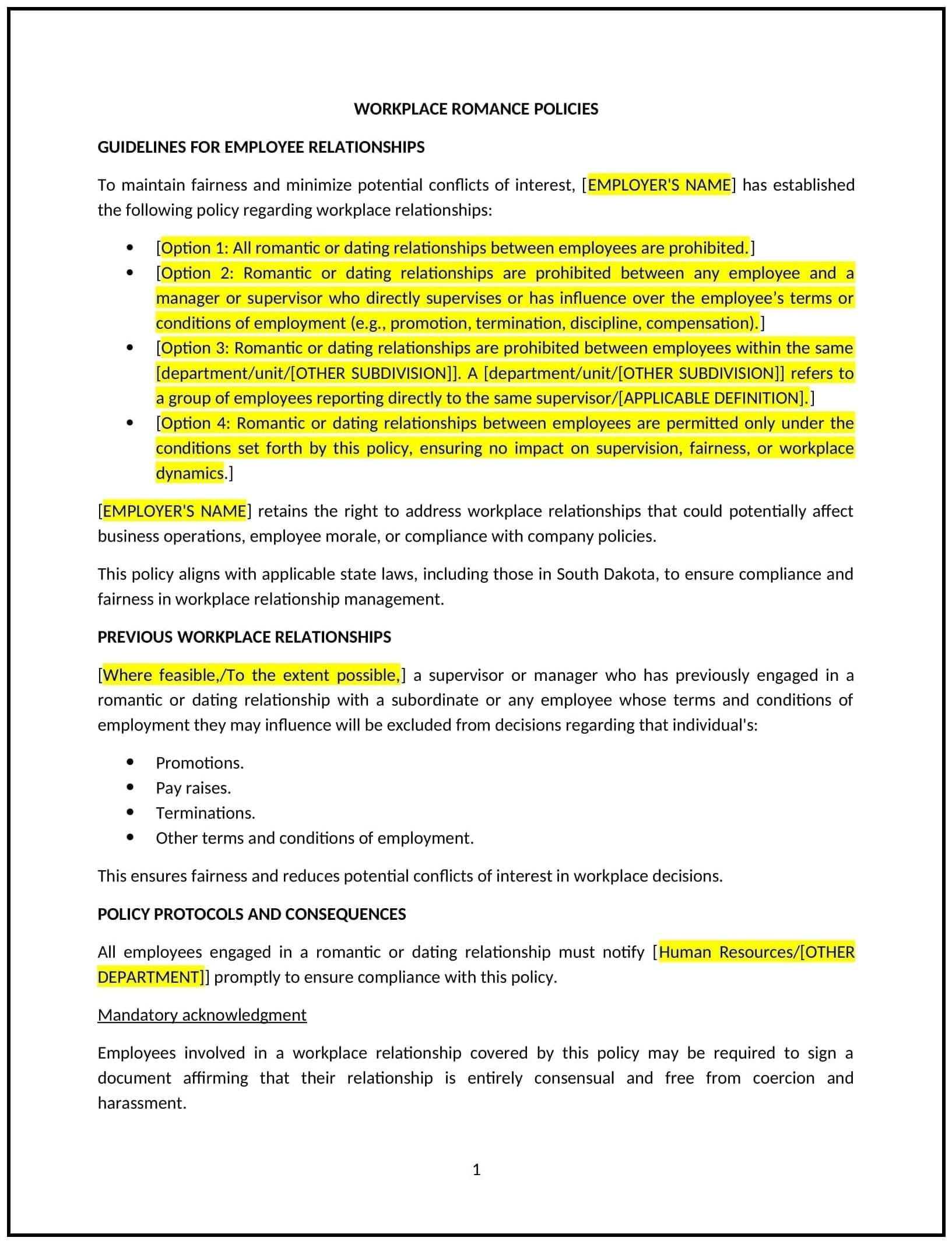Workplace romance policy (South Dakota): Free template
Got contracts to review? While you're here for policies, let Cobrief make contract review effortless—start your free review now.

Customize this template for free
Workplace romance policy (South Dakota)
This workplace romance policy is designed to help South Dakota businesses establish guidelines for managing romantic relationships between employees. It outlines expectations for professionalism, disclosure, and conflict of interest to maintain a productive and respectful work environment.
By adopting this policy, businesses can reduce potential conflicts, protect workplace dynamics, and align with general best practices for employee relations.
How to use this workplace romance policy (South Dakota)
- Define scope: Specify which relationships are covered, such as those between supervisors and subordinates or between peers.
- Set disclosure requirements: Provide guidelines for employees to disclose romantic relationships that may impact workplace dynamics.
- Address conflicts of interest: Outline procedures for managing situations where a romantic relationship creates a conflict of interest, such as reassigning roles or responsibilities.
- Ensure professionalism: Emphasize the importance of maintaining professionalism in the workplace, even in personal relationships.
- Train managers: Educate supervisors on handling disclosures, addressing conflicts, and enforcing the policy.
- Review and update: Assess the policy annually to ensure it aligns with evolving workplace needs and employee expectations.
Benefits of using this workplace romance policy (South Dakota)
This policy offers several advantages for South Dakota businesses:
- Reduces conflicts: Provides clear guidelines for managing romantic relationships, minimizing potential disruptions.
- Protects workplace dynamics: Ensures that personal relationships do not negatively impact team morale or productivity.
- Aligns with best practices: Demonstrates a commitment to maintaining a professional and respectful work environment.
- Enhances transparency: Encourages employees to disclose relationships that may affect workplace dynamics.
- Mitigates risks: Helps reduce legal and reputational risks associated with workplace romances.
Tips for using this workplace romance policy (South Dakota)
- Communicate the policy: Share the policy with employees and include it in the employee handbook.
- Provide training: Educate employees and managers on the policy’s expectations and procedures.
- Monitor compliance: Regularly review disclosures and address any conflicts of interest promptly.
- Address issues promptly: Take corrective action if a romantic relationship negatively impacts workplace dynamics.
- Update regularly: Review the policy annually to ensure it remains relevant and effective.